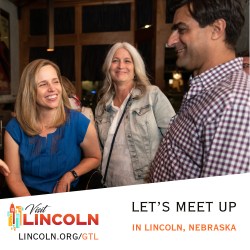If you went to meet your maker tomorrow, what would become of your organization?
No, I’m not here to sell you life insurance. But I do think it’s important to talk about the future. Because if there is value in what you do as a travel leader — and I believe there is — then preserving that value for the future is a worthwhile endeavor.
If you’re a tourism professional working for a large tour company, travel agency, attraction, hotel or DMO, you may not spend much time thinking about the future of your organization, because business interests are likely to keep the ship afloat regardless of who is on board. But most readers of this magazine don’t have that luxury — they are mom-and-pop tour operators, independent group leaders or volunteers for civic or religious organizations. They don’t have support staffs or big budgets. If anything is going to get done, they will be the ones to do it.
Organizing and leading group travel requires a broad range of knowledge and skills. It’s likely that you’re the only person in your organization who knows how to plan, sell and lead a trip well from start to finish. If so, you may have a problem.
Experts say that great leaders are constantly working themselves out of a job — true leaders identify and train new leaders, bringing them to a place of competence and confidence so they can eventually take the helm themselves. An organization committed to leadership development can sustain itself generation after generation.
If your travel group is a hobby to you, something you enjoy doing to be with friends and see the world in your spare time, perhaps longevity hasn’t crossed your mind. You assume that once your group gets too old to travel, things will naturally wind down. And if that’s the way you want to leave things, so be it.
But if your organization has a greater cause — if you’re serving a community, advancing a mission, building a business or trying to change the world through travel — don’t you want the travel program that you’re investing in now to continue to make an impact even when you’re no longer involved?
Making your organization sustainable for the long term will mean developing new leaders. You’ll have to find people who are interested in what you do and show them the ropes. You’ll need to teach them your methods, share your contacts and let them begin to assist you. And eventually, you will have to let them lead some trips of their own.
In addition to maintaining your organization for the long term, developing new leaders can bring a lot of other benefits. New, younger leaders are likely to have expertise in technology or social media that you may lack. They will have ideas about destinations and activities that you would not have thought of on your own. And since they will have younger friends and family, they may help bridge the generational divide and bring younger people into your organization.
Of course, it won’t be a breeze. Training new leaders involves a lot of time and sometimes a financial investment as well. There will be moments of tension, and giving up some aspects of control may prove more difficult than you expect.
In the end, though, I think you’ll find that developing new leaders will bring new life into your organization now and serve as a launching pad to a bright future.










